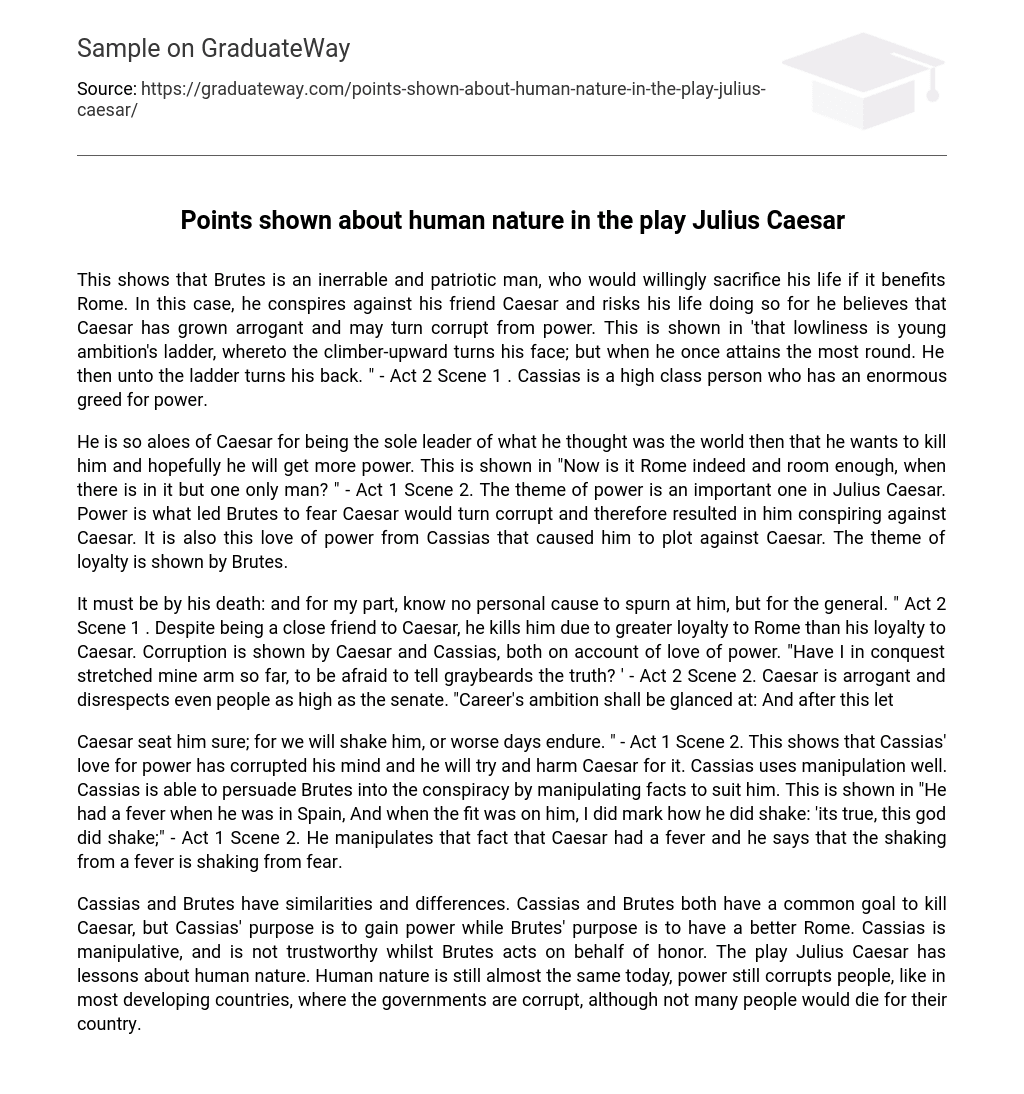This shows that Brutes is an inerrable and patriotic man, who would willingly sacrifice his life if it benefits Rome. In this case, he conspires against his friend Caesar and risks his life doing so for he believes that Caesar has grown arrogant and may turn corrupt from power. This is shown in ‘that lowliness is young ambition’s ladder, whereto the climber-upward turns his face; but when he once attains the most round. He then unto the ladder turns his back. ” – Act 2 Scene 1 . Cassias is a high class person who has an enormous greed for power.
He is so aloes of Caesar for being the sole leader of what he thought was the world then that he wants to kill him and hopefully he will get more power. This is shown in “Now is it Rome indeed and room enough, when there is in it but one only man? ” – Act 1 Scene 2. The theme of power is an important one in Julius Caesar. Power is what led Brutes to fear Caesar would turn corrupt and therefore resulted in him conspiring against Caesar. It is also this love of power from Cassias that caused him to plot against Caesar. The theme of loyalty is shown by Brutes.
It must be by his death: and for my part, know no personal cause to spurn at him, but for the general. ” Act 2 Scene 1 . Despite being a close friend to Caesar, he kills him due to greater loyalty to Rome than his loyalty to Caesar. Corruption is shown by Caesar and Cassias, both on account of love of power. “Have I in conquest stretched mine arm so far, to be afraid to tell graybeards the truth? ‘ – Act 2 Scene 2. Caesar is arrogant and disrespects even people as high as the senate. “Career’s ambition shall be glanced at: And after this let
Caesar seat him sure; for we will shake him, or worse days endure. ” – Act 1 Scene 2. This shows that Cassias’ love for power has corrupted his mind and he will try and harm Caesar for it. Cassias uses manipulation well. Cassias is able to persuade Brutes into the conspiracy by manipulating facts to suit him. This is shown in “He had a fever when he was in Spain, And when the fit was on him, I did mark how he did shake: ‘its true, this god did shake;” – Act 1 Scene 2. He manipulates that fact that Caesar had a fever and he says that the shaking from a fever is shaking from fear.
Cassias and Brutes have similarities and differences. Cassias and Brutes both have a common goal to kill Caesar, but Cassias’ purpose is to gain power while Brutes’ purpose is to have a better Rome. Cassias is manipulative, and is not trustworthy whilst Brutes acts on behalf of honor. The play Julius Caesar has lessons about human nature. Human nature is still almost the same today, power still corrupts people, like in most developing countries, where the governments are corrupt, although not many people would die for their country.





